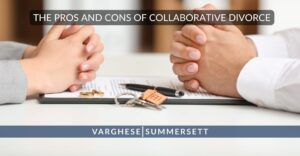False Statement to Obtain Property or Credit
Pursuant to Penal Code 32.32, it is a criminal offense to intentionally or knowingly make a false statement to obtain property or credit. The most important elements of Making a False or Misleading Statement to Obtain Credit are 1) the act of making a materially false statement and 2) making the statement with the intent to obtain the property or credit. Actually obtaining the property or the credit is not an element of the offense.
Therefore a person can make a material false without getting money or property and still be charged with this offense while:
- applying for a loan;
- endorsing or guaranteeing a loan;
- applying for a line of credit;
- applying for a credit card; or
- applying for a mortgage loan.
Texas courts have upheld this lack of acquisition of property. See Jones v. State, 323 S.W.3d 885, 889 (Tex. Crim. App. 2010)(holding the offense is complete once the written deceptive statement to obtain credit was made).
What is the Difference between Theft and False Statement to Obtain Property or Credit?
Making a false statement to obtain credit is generally considered a white collar crime and is distinguishable from theft. Theft requires the appropriation of property. Making a false statement to obtain credit does not. This gives prosecutors an additional tool to go after offenses that do not become theft charges. The availability of this charge does not preclude federal prosecutors from pressing charges for offenses such as mortgage fraud or wire fraud.
How are Making a False or Misleading Statement to Obtain Credit case charged?
Since the elements of the offense are so simple, prosecutors could add a count for every false or misleading statement that is material within the application or written statement. For example, if a potential borrower inflates the value of his checking and savings account on a loan application, that could give rise two separate counts of False Statement to Obtain Property or Credit even though those statements were made within the same loan application. See Jones v. State, 323 S.W.3d 885 (Tex. Crim. App. 2010) (Each materially false or misleading statement” constitutes a separate offense.)
Building a Defense Against Allegations of Making a False Statement to Obtain Credit in Fort Worth
The level of an offense for making a false or misleading statement to obtain credit in Fort Worth is determined by the value of the loan or property at issue. To learn more, call an attorney for assistance.



